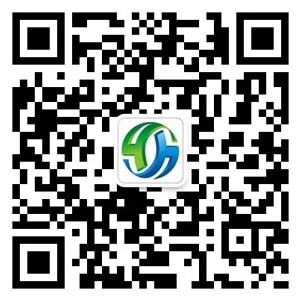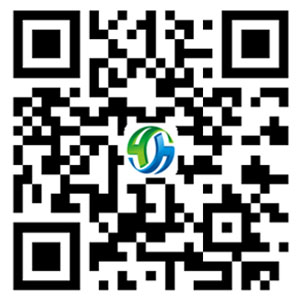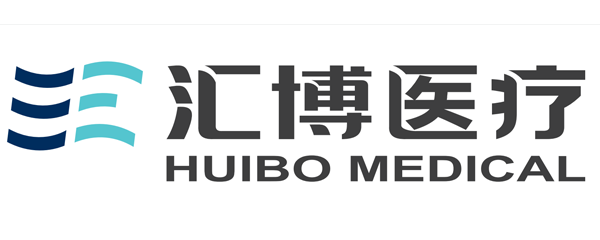Recently, the State Food and Drug Administration issued an announcement on the "Regulations on the Administration of Medical Device Registration Self-inspection" (No. 126 of 2021), which regulates the registration and self-inspection of registered applicants, which will be implemented from the date of issuance. The specific notice is as follows:
In order to strengthen the management of medical device registration, standardize the registration and self-inspection of registration applicants, and ensure the orderly development of medical device registration and inspection work, in accordance with the "Regulations on the Supervision and Administration of Medical Devices" (State Council Order No. 739) and the "Administrative Measures for the Registration and Filing of Medical Devices" “Regulations for the Registration and Filing of In Vitro Diagnostic Reagents” (Order No. 47 of the State Administration for Market Regulation), “Administrative Measures for the Registration and Filing of In Vitro Diagnostic Reagents” (Order No. 48 of the State Administration for Market Regulation). To be released, it will take effect on the date of release.
Special announcement.
1. Self-inspection capability requirements
(1) General requirements
If self-inspection is carried out during registration, the registration applicant shall have the self-inspection ability, incorporate the self-inspection work into the medical device quality management system, be equipped with inspection equipment and facilities that meet the product inspection requirements, and have corresponding quality inspection departments or full-time inspectors. Strictly control the inspection process to ensure that the inspection results are true, accurate, complete and traceable, and take the main responsibility for the self-inspection report.
(2) Inspection ability requirements
1. Personnel requirements. The registration applicant shall have inspectors and management personnel (including reviewers and approval personnel) suitable for the inspection activities carried out. The applicant for registration shall be equipped with full-time inspectors, and the inspectors shall be officially hired personnel and can only work in the enterprise.
The educational background, technical ability and quantity of the inspectors should match the product inspection work. Inspectors should be familiar with relevant laws and regulations, standards and product technical requirements for medical devices, master the principles of inspection methods, test operation skills, work instructions, quality control requirements, laboratory safety and protection knowledge, measurement and data processing knowledge, etc., and should pass Medical device related laws and regulations, quality management and related professional technical training and assessment。
Inspectors, reviewers, approval personnel, etc. shall be authorized by the registration applicant in accordance with regulations.
2. Requirements for equipment and environmental facilities. The registration applicant shall be equipped with equipment and environmental facilities that meet the requirements of the inspection method, establish and save the files, operating procedures, measurement/calibration certificates, use and maintenance records of the equipment and environmental facilities, and carry out value traceability in accordance with relevant regulations.
For laboratories that carry out special professional inspections, such as biological evaluation, electromagnetic compatibility, biological safety, in vitro diagnostic reagent laboratories, etc., their environmental facilities should meet their specific professional requirements.
3. Sample management requirements. The registration applicant shall establish and implement inspection sample management procedures to ensure that the samples are controlled and maintained in a corresponding state.
4. Inspection quality control requirements. Registration applicants should use appropriate methods and procedures to carry out all inspection activities. When applicable, it includes the evaluation of measurement uncertainty and the use of statistical techniques for data analysis.
Encourage registered applicants to participate in related proficiency testing/interlaboratory comparison projects organized by proficiency testing institutions to improve testing capabilities and levels.
5. Recorded control requirements. All quality records, original inspection records and relevant certificates/certificate copies and other technical records should be archived and kept for an appropriate period. Records include, but are not limited to, equipment usage records, original inspection records, purchase and acceptance records of raw and auxiliary materials for inspection, etc. The retention period of records shall meet the requirements of relevant laws and regulations.
(3) Management system requirements
Where a registration applicant conducts self-inspection, it shall establish and implement a management system suitable for self-inspection in accordance with the requirements of relevant inspection work and self-inspection of declared products.
The self-inspection work shall be incorporated into the medical device quality management system. Registration applicants should formulate quality management system documents related to self-inspection (including quality manuals, procedures, work instructions, etc.), risk management of inspections carried out, and documents related to medical device regulations, etc., and ensure their effective implementation And controlled.
(4) Basis for self-inspection
The registration applicant shall conduct inspections in accordance with the product technical requirements of the products to be registered.
The formulation of inspection methods should be compatible with the corresponding performance indicators, and priority should be given to the use of promulgated standard inspection methods or recognized inspection methods.
The inspection method shall be verified or confirmed to ensure the repeatability and operability of the inspection.
For in-vitro diagnostic reagent products, the test method should also clearly indicate the reference product/standard product used, the sample preparation method, the batch and quantity of the reagent used, the number of tests, the calculation method, etc.
(5) Other matters
1. The applicant for registration of entrusted production may entrust the entrusted production enterprise to carry out the self-inspection, and the registration applicant shall issue the corresponding self-inspection report. The self-inspection capability of the entrusted production enterprise shall meet the requirements of these regulations.
2. The domestic group company or its subsidiary where the domestic registration applicant is located has a laboratory accredited by the China National Accreditation Service for Conformity Assessment, or the overseas group company or its subsidiary where the overseas registration applicant is located has a laboratory accredited by the foreign government or government For laboratories accredited by the corresponding laboratory qualification certification body, with the authorization of the group company, the corresponding laboratory may carry out self-inspection for the registered applicant, and the registered applicant shall issue the corresponding self-inspection report.
In order to strengthen the management of medical device registration, standardize the registration and self-inspection of registration applicants, and ensure the orderly development of medical device registration and inspection work, in accordance with the "Regulations on the Supervision and Administration of Medical Devices" (State Council Order No. 739) and the "Administrative Measures for the Registration and Filing of Medical Devices" “Regulations for the Registration and Filing of In Vitro Diagnostic Reagents” (Order No. 47 of the State Administration for Market Regulation), “Administrative Measures for the Registration and Filing of In Vitro Diagnostic Reagents” (Order No. 48 of the State Administration for Market Regulation). To be released, it will take effect on the date of release.
Special announcement.
State Food and Drug Administration
October 21, 2021
Regulations on the Administration of Medical Device Registration and Self-inspection
In order to strengthen the registration management of medical devices (including in vitro diagnostic reagents), standardize the registration and self-inspection of registration applicants, and ensure the orderly development of medical device registration review work, in accordance with the "Regulations on the Supervision and Administration of Medical Devices" and the "Administrative Measures for the Registration and Filing of Medical Devices". The Regulations on the Registration and Filing of In Vitro Diagnostic Reagents are formulated.1. Self-inspection capability requirements
(1) General requirements
If self-inspection is carried out during registration, the registration applicant shall have the self-inspection ability, incorporate the self-inspection work into the medical device quality management system, be equipped with inspection equipment and facilities that meet the product inspection requirements, and have corresponding quality inspection departments or full-time inspectors. Strictly control the inspection process to ensure that the inspection results are true, accurate, complete and traceable, and take the main responsibility for the self-inspection report.
(2) Inspection ability requirements
1. Personnel requirements. The registration applicant shall have inspectors and management personnel (including reviewers and approval personnel) suitable for the inspection activities carried out. The applicant for registration shall be equipped with full-time inspectors, and the inspectors shall be officially hired personnel and can only work in the enterprise.
The educational background, technical ability and quantity of the inspectors should match the product inspection work. Inspectors should be familiar with relevant laws and regulations, standards and product technical requirements for medical devices, master the principles of inspection methods, test operation skills, work instructions, quality control requirements, laboratory safety and protection knowledge, measurement and data processing knowledge, etc., and should pass Medical device related laws and regulations, quality management and related professional technical training and assessment。
Inspectors, reviewers, approval personnel, etc. shall be authorized by the registration applicant in accordance with regulations.
2. Requirements for equipment and environmental facilities. The registration applicant shall be equipped with equipment and environmental facilities that meet the requirements of the inspection method, establish and save the files, operating procedures, measurement/calibration certificates, use and maintenance records of the equipment and environmental facilities, and carry out value traceability in accordance with relevant regulations.
For laboratories that carry out special professional inspections, such as biological evaluation, electromagnetic compatibility, biological safety, in vitro diagnostic reagent laboratories, etc., their environmental facilities should meet their specific professional requirements.
3. Sample management requirements. The registration applicant shall establish and implement inspection sample management procedures to ensure that the samples are controlled and maintained in a corresponding state.
4. Inspection quality control requirements. Registration applicants should use appropriate methods and procedures to carry out all inspection activities. When applicable, it includes the evaluation of measurement uncertainty and the use of statistical techniques for data analysis.
Encourage registered applicants to participate in related proficiency testing/interlaboratory comparison projects organized by proficiency testing institutions to improve testing capabilities and levels.
5. Recorded control requirements. All quality records, original inspection records and relevant certificates/certificate copies and other technical records should be archived and kept for an appropriate period. Records include, but are not limited to, equipment usage records, original inspection records, purchase and acceptance records of raw and auxiliary materials for inspection, etc. The retention period of records shall meet the requirements of relevant laws and regulations.
(3) Management system requirements
Where a registration applicant conducts self-inspection, it shall establish and implement a management system suitable for self-inspection in accordance with the requirements of relevant inspection work and self-inspection of declared products.
The self-inspection work shall be incorporated into the medical device quality management system. Registration applicants should formulate quality management system documents related to self-inspection (including quality manuals, procedures, work instructions, etc.), risk management of inspections carried out, and documents related to medical device regulations, etc., and ensure their effective implementation And controlled.
(4) Basis for self-inspection
The registration applicant shall conduct inspections in accordance with the product technical requirements of the products to be registered.
The formulation of inspection methods should be compatible with the corresponding performance indicators, and priority should be given to the use of promulgated standard inspection methods or recognized inspection methods.
The inspection method shall be verified or confirmed to ensure the repeatability and operability of the inspection.
For in-vitro diagnostic reagent products, the test method should also clearly indicate the reference product/standard product used, the sample preparation method, the batch and quantity of the reagent used, the number of tests, the calculation method, etc.
(5) Other matters
1. The applicant for registration of entrusted production may entrust the entrusted production enterprise to carry out the self-inspection, and the registration applicant shall issue the corresponding self-inspection report. The self-inspection capability of the entrusted production enterprise shall meet the requirements of these regulations.
2. The domestic group company or its subsidiary where the domestic registration applicant is located has a laboratory accredited by the China National Accreditation Service for Conformity Assessment, or the overseas group company or its subsidiary where the overseas registration applicant is located has a laboratory accredited by the foreign government or government For laboratories accredited by the corresponding laboratory qualification certification body, with the authorization of the group company, the corresponding laboratory may carry out self-inspection for the registered applicant, and the registered applicant shall issue the corresponding self-inspection report.



